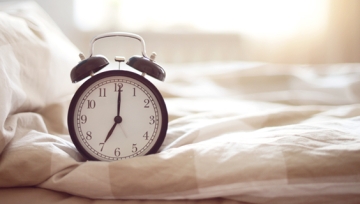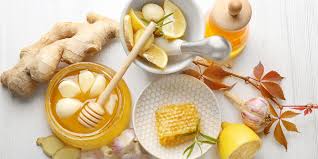How to Rest Better Without Relying on Sleeping Pills
As we age, it's normal for our sleep patterns to change. But that doesn't mean restless nights and early-morning wake-ups have to become your new normal. In fact, quality sleep is just as important after 60 as it is in your younger years—supporting memory, mood, heart health, immune function, and overall energy.
If you're having trouble falling asleep, staying asleep, or waking up refreshed, there are many natural strategies you can try before turning to medications.
🧠 Why Does Sleep Change With Age?
Older adults may notice:
-
Falling asleep later or earlier than usual
-
Lighter, more fragmented sleep
-
Waking up more during the night
-
Needing to nap more during the day
-
Less time spent in deep (restorative) sleep
These changes can be due to hormonal shifts, medical conditions, medication side effects, or even reduced daytime activity.
🌿 Natural Sleep-Boosting Strategies
🕰️ 1. Stick to a Consistent Sleep Schedule
-
Go to bed and wake up at the same time every day—even on weekends.
-
Your internal clock thrives on routine.
☀️ 2. Get Morning Sunlight
-
Exposure to natural light in the morning helps regulate your circadian rhythm.
-
Spend 15–30 minutes outdoors or near a bright window soon after waking up.
☕ 3. Watch Your Caffeine & Alcohol Intake
-
Avoid caffeine (coffee, tea, chocolate, soda) after 2 PM.
-
Alcohol might make you feel sleepy, but it disrupts deep sleep later in the night.
📵 4. Limit Screen Time Before Bed
-
The blue light from phones, tablets, and TVs suppresses melatonin, your sleep hormone.
-
Power down screens at least 1 hour before bed.
🧘 5. Try Relaxation Techniques
-
Deep breathing, meditation, or gentle stretching can help calm your mind.
-
Apps like Calm or Insight Timer offer guided sleep sessions.
-
Reading a book or journaling can also signal your body that it’s time to wind down.
🛏️ 6. Create a Sleep-Friendly Bedroom
-
Keep your bedroom cool, quiet, and dark.
-
Use blackout curtains, a fan, or a white noise machine if needed.
-
Reserve your bed for sleep—not for watching TV or scrolling your phone.
🫖 7. Use Herbal Aids (With Caution)
Natural remedies that may support sleep include:
-
Chamomile tea
-
Valerian root
-
Melatonin supplements (low dose, short-term use)
-
Lavender essential oil (diffused or in a pillow spray)
📝 Always talk to your doctor before trying herbs or supplements, especially if you're on medications.
🚶 8. Stay Active During the Day
-
Regular physical activity promotes deeper sleep.
-
Aim for 30 minutes of walking, stretching, or low-impact exercise most days.
-
Avoid vigorous workouts too close to bedtime.
🍽️ 9. Lighten Your Evening Meals
-
Avoid heavy dinners or late-night snacks that can cause indigestion.
-
Include sleep-supportive foods like bananas, oatmeal, almonds, or warm milk.
⏰ 10. Don’t Toss and Turn
-
If you can't fall asleep within 20 minutes, get up and do something calming in another room.
-
Return to bed only when you feel sleepy.
📞 When to Seek Help
Talk to a healthcare provider if:
-
You have chronic insomnia
-
You snore loudly or gasp during sleep (possible sleep apnea)
-
You wake up unrefreshed even after 7–8 hours
-
Sleep issues are affecting your mood or daily life
A sleep study or checkup can help rule out underlying issues.
💤 Final Thoughts
Better sleep doesn't have to come from a pill bottle. With a few lifestyle tweaks and a calming routine, you can improve the quality of your sleep naturally—waking up feeling more refreshed, focused, and energized each day.
Rest is not a luxury—it’s a pillar of healthy aging.
✅ Quick Sleep Checklist for Older Adults
-
Consistent sleep and wake times
-
Morning sunlight exposure
-
No caffeine after mid-afternoon
-
Wind down with relaxation techniques
-
Sleep-friendly environment
-
Daily gentle exercise
-
Herbal teas or sleep aids (with medical approval)




Comments (0)
Leave a Comment
No comments yet. Be the first to share your thoughts!